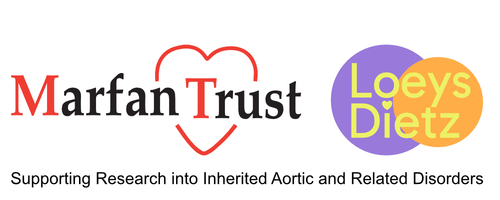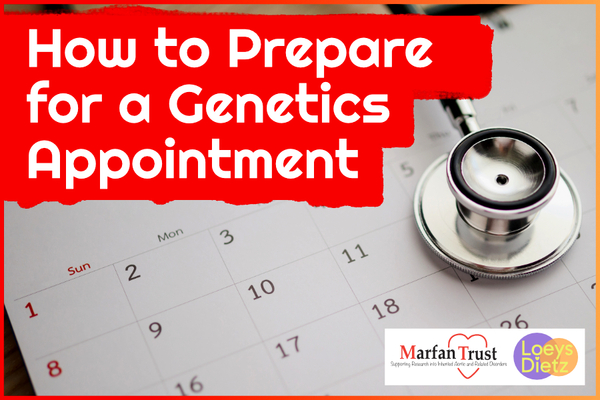It can be a long wait for a genetics appointment. Once you are finally seen, it's important to fully prepared and here is a short but comprehensive list of everything you need to know.
A genetic diagnosis is often the key to diagnostic certainty for many people with Marfan and Loeys-Dietz syndromes. There can be a long wait from being referred for genetic counselling to being seen in clinic, this can be frustrating, but it also gives you the opportunity to prepare and collect as much information as you can. This allows you to make the most of the appointment and hopefully get some of the answers that you need.
What should I bring?
In short, as much information as possible! The NHS is getting better at sharing information across different Trusts, but it can be very frustrating for you if the Geneticist doesn’t have access to important documentation:
· If you have been referred for genetic testing, it’s important to collect all your relevant medical history. This could include letters from other specialists', results from echocardiograms, CT or MRI scans, results from an eye examination. Ask to be Cc’d on your medical letters (this should be standard) and bring hard copies of these along
· The Geneticist won’t just be interested in your medical history, they will want as much information as possible about your family history. Take time to think about your wider family and collect this information if you can. Does anyone have similar features or symptoms to you? Has anyone already got a diagnosis? Make a note of this so you don’t forget any details.
· Has anyone in your family died at a young age or unexpectedly? Although it can be difficult to talk about, this information can be really relevant to the Geneticist. Sometimes the cause of death isn’t clear amongst family members, but accurate information is vital so trying to access a death certificate can be very helpful.
· If your child has been referred for genetic testing, it can be helpful if both parents can attend the appointment so the Geneticist can look for common features and ask about both families.
· Bring photographs of family members
· If anyone in your family has already had genetic testing, try and get some details if they are happy to share with you.
· Think about any questions you would like to ask and write these down.
· Bring some paper and a pen so you can jot down information, it’s hard to remember everything
· Consider bringing a trusted partner, family member or friend along with you for support and to help absorb all the information.
We are here to help if you would like to discuss the genetic testing process or get further advice about preparing for an appointment.









